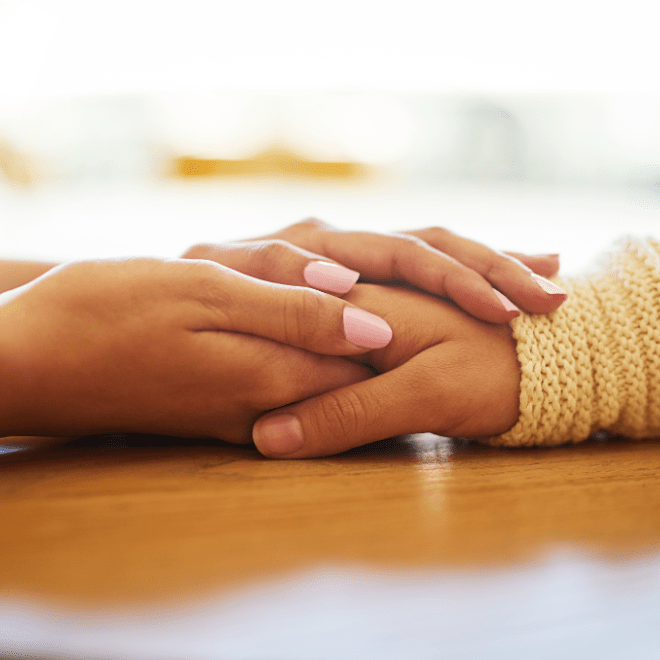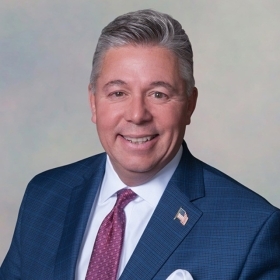Supporting College Student Survivors of Sexual Assault: a Guide for Friends and Family

In this blog post, we share best practices for supporting a student survivor of sexual violence with care, respect, and self-care.
Recent statistics show that one in five women and one in 16 men experience sexual assault while in college. Shockingly, less than 10 percent of these cases are reported. Survivors often turn to their friends or loved ones for support, so it’s essential to be prepared if someone you know confides in you about their experience.
It’s normal to feel nervous and unsure of how to respond, but the first reaction a survivor receives after disclosing their experience can significantly impact their recovery.
Sexual Assault Definition
According to St. John’s University Policy 703: Title IX and NY Education Law Article 129-B Sexual Misconduct Policy and Procedures, the University defines sexual assault “as any unwanted or unwelcome touch of a sexual nature that occurs without consent, including but not limited to rape, fondling, incest, or statutory rape. This includes being forced or pressured to perform sexual acts.”
Why Survivors Might Not Share Their Experience
Trauma can be a difficult thing to understand, and it profoundly influences a person’s response to an incident and shapes the aftermath. Some people may struggle to express intense emotion, there may be loss or damage to memory, and/or there may be a period of hypervigilance, or even a reduced immune response.
Trauma and its varying effects can impact whether a survivor wants to share their experience. Sometimes, they cannot recall a timeline, or they might have memory lapses. However, one of the most common reasons survivors choose not to share is because they fear they won’t be believed.
What to do if a Student Survivor Shares Their Experience with You
Avoid Harmful Responses.
Implicit bias tells us that we may sometimes have automatic cognition that influences how we judge specific situations. For example, it can lead to an unconscious belief that the survivor is lying. To avoid retraumatizing the victim, it is crucial to be aware of implicit biases and take steps to prevent them from interfering in this conversation. One way to do that is to avoid asking questions that insinuate the person played a role in the harm they experienced, such as
- Why didn’t you call for help?
- How much were you drinking?
- What were you wearing?
- Are you sure you said no?
- Did you tell them to stop?
- Why were you with them if you didn’t want this to happen?
It’s essential to avoid this level of questioning, which inherently makes the survivor feel blame and responsibility for something that was not their fault and they didn’t deserve. Instead, here is a better approach to having a conversation with someone who has experienced trauma.
Using Trauma-Informed Responses
Start by believing. Good phrases to use include
- I believe you.
- You didn’t deserve this.
- You aren’t alone.
- I care about you and am here to listen to you or help you however I can.
- I am sorry this happened.
- I know it took a lot of courage to tell me about this.
These phrases acknowledge how difficult it can be for survivors to come forward. Survivors may also blame themselves, so telling them it’s not their fault can be monumental for their healing. These phrases communicate empathy and acknowledge that this experience has impacted their life, and create a supportive, nonjudgmental, and blame-free environment for the survivor to feel heard and validated.
Ask what they need and connect with resources.
Healing is a nonlinear process with no set time for recovery. Some days are more difficult than others, and their needs may change accordingly. It’s helpful to ask survivors what they need instead of assuming they don’t. Some days, they may benefit from a listening ear, a fun day with friends, or services from a counselor or medical provider. It is essential to be supportive when someone tells you about something that happened to them, but also understand you are only one person and aren’t fully equipped to manage someone else’s health. Become acquainted with resources so you can direct them accordingly.
Remember to practice self-care.
There is no right reaction to hearing that someone you know or love has experienced an act of sexual violence. You might feel anger, anxiety, confusion, disbelief, guilt, and sadness. All of these are valid reactions. While the survivor is disclosing what happened to them, it’s important to remain supportive and in control of these big feelings for the sake of the survivor, who is sharing something complicated and traumatizing.
However, these feelings are normal, and taking care of yourself is essential, too. This includes maintaining your lifestyle after hearing about what happened, making plans with friends, going on solo adventures, and taking time to relax. It is also recommended that you talk with a professional about these feelings. It is normal to have a difficult time processing this, but there are people who understand what you’re going through and are professionally trained to help you cope with these feelings. Don’t be afraid to reach out and get help.
These are some things to remember when someone decides to trust you and discuss sexual violence they have experienced. In addition, sticking to these key phrases can help you if you don’t know exactly what to say. It may feel scary, and you may be worried about saying the wrong thing, but if you approach the conversation ready to listen and support them how they need you to, you can help them begin the process of healing.
St. John’s University offers an array of resources for survivors of sexual assault, including
- Campus Support Advisor: 718-990-8484 or [email protected]
- Center for Counseling and Consultation: 718-990-6384
- After Hours Mental Helpline
- Additional educational resources are offered by the SOAR (Sexual violence Outreach, Awareness, and Response) office.
If you or someone you know has been impacted by sexual violence and would like to report it, contact the Title IX Office at [email protected] or 718-990-2660. If you need more information on how to report sexual assault, please visit this webpage.






